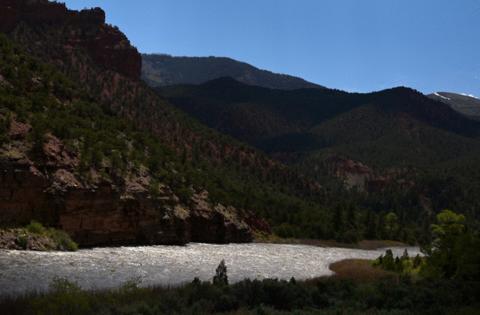Tribes have rights to a quarter of Colorado River's water but have been excluded from decision-making. Will that change?
Published in News & Features
DENVER — As negotiations continue over the future of the critical Colorado River system, the 30 tribal nations that depend on its water are demanding a seat at the negotiating table — from which they’ve been excluded for a century.
Together, the tribal nations in the basin hold senior rights to about a quarter of the river’s water. Few, however, can access all the water they own because of lack of funding for infrastructure or ongoing legal processes.
Their inaccessible water instead flows downstream to other users.
The tribes have sought greater inclusion and sway in decision-making on the Colorado River for decades. They are once again demanding a formal role in decisions about how water supply cuts should be made before the current set of operating guidelines for the river expire at the end of 2026. As flows shrink, the seven states in the basin dominate negotiations about the river, which provides water for 40 million people in the West.
More tribal involvement is happening — slowly — but tribal, state and federal leaders have said much more work needs to be done.
Tribes should be seen as equal players at the negotiating table with state representatives and federal officials, said Lorelei Cloud, the vice chairman of the Southern Ute Indian Tribal Council and the first tribal member of the Colorado Water Conservation Board. She said Native American perspectives on the river’s future must be taken seriously.
“We’re the first inhabitants of this entire river,” she said, noting her ancestral homeland included a large swath of the Colorado River basin.
A formal agreement signed in April between the Upper Colorado River Commission and the six tribes with land in the Upper Basin has sparked hope for further inclusion. That commission is made up of representatives from Colorado, New Mexico, Utah and Wyoming, as well as a federal appointee.
Tribal, state and federal leaders have called the agreement historic.
“I think it’s worth emphasizing that this is the first and, so far, the only formal mechanism for including tribes in decision-making in the Colorado River basin,” said Anne Castle, the federal appointee to the Upper Colorado River Commission, during a commission meeting on June 26.
...continued
©2024 MediaNews Group, Inc. Visit at denverpost.com. Distributed by Tribune Content Agency, LLC.







Comments